 9
comments
|
Tuesday, February 17, 2009
9
comments
|
Tuesday, February 17, 2009

A note on this post from Darian: When I approached my friend Michael Brewer to respond to Gerren Gaynor's article he did not hesitate, but warned me that his post would be a thesis. He didn't lie. There was very little editing done on my part just because I felt Michael nailed it in a way only he can. Do yourself a favor and commit to reading the entire post.
I, Too, Sing Morehouse
By: Michael J. Brewer
In the spirit of full disclosure, let me state clearly the realities and intentions of the following composition. I am a self-identified openly gay Man of Morehouse, so while I’ve tried to remain as objective as possible please forgive any discernable bias. For the purposes of this composition, I have chosen to use the word “queer” liberally and inclusively to encompass the breadth of queer identities. I understand that some chose not to prescribe to this term and others utilized throughout the piece, and I honor the liberty of those to identify themselves – my usage of “queer” of any other nominalization is not intended to offend anyone’s sensibility.
Moreover, while this piece is precipitated by an article entitled “Is Gay the Way?” published first in The Maroon Tiger (2/11/09), Morehouse College’s student newspaper, it is certainly in no way intended to (nor should it be construed to be) an attack on the author of the article or the integrity of the article itself. While it is incumbent upon me to lovingly challenge my Morehouse brothers’ arguments and respectfully critique his assertions when deemed necessary, it is equally important that I champion him and his expression of opinion.
This is not a comprehensive and declarative statement on the history and current conditions of homophobia, heterosexism, patriarchy, or heteronormativty at Morehouse College – alas, I am not equipped to produce such a treatise. This is my take on these issues, reflected through the lens of my experience. Not saying that my observations and theories don’t have implications on the greater community – rather that they are non-empirical and may not capture the experiences of others. Lastly, this piece is not an assault on the character of or a diminishment of all of the hard-won progress made by my beloved institution, Morehouse College, to which I am infinitely indebted for making me the man I am today – a Morehouse Man.
The pervasive history of homophobia, heterosexism, patriarchy, and discrimination based on sexual orientation & gender identity at Morehouse College has weaved its way through the lining of our historical tapestry and, at the very least, has positioned itself as a very significant piece of any dialogue about Morehouse and her sensibilities.
The treatment of issues related to sexual and gender politics at Morehouse College has, at best, championed the institution’s radical ethos of 142 years of cultural and societal progress. At worst, it has stymied this growth, perverting the promise of Morehouse to both her sons and community. The newest interpretation of the conversation surrounding these issues has taken a retroactive tone, evoking a spirit of parochialism and slight ignorance that we of Morehouse College had, presumably, moved past. As disappointing as such a steps backward are, we of Morehouse College are charged to continue moving forward, retracing our progress and building a new tradition for Dear Old Morehouse, one that promotes inclusion instead of acceptance, celebration instead of tolerance. It is in this spirit that I submit this loving challenge and addition to the current cacophony of opinion orbiting this extremely charged discourse.
When it comes to issues regarding homosexuality at Morehouse College, I believe the first task of the majority (read: heterosexual population and/or those who promulgate heterosexism and heteronormativity) is to acknowledge the privilege that informs their argument and, thusly, creates the context for the conversation being held. Indeed, it is this environment of heterosexual privilege that we of Morehouse College operate in and through (for some of us, around), and influences our thoughts and belief systems – justly, it need be named. Some may find this task unnecessary and laborious, not seeing the pertinence it plays in this dialogue. However, I submit that it is always incumbent upon majority communities to first “check their privilege” before engaging in conversation about marginalized peoples.
It is this privilege that perceives “threats” to the established status quo and fallaciously conflates the influence of the marginalized community on the aforementioned. For example, while Morehouse does have homosexual students, I would gather that there are no many more gay/bisexual/queer men at Morehouse than there are at any other institution – majority or HBCU. With more students, it’s statistically probable that colleges and universities larger than Morehouse (of which there are plenty, with Morehouse’s student population not even tipping 3,000 men) would have much more sizeable queer communities.
The unique demographic composition of my beloved institution, perhaps, exaggerates the reality of this campus “phenomenon.” However, with only an estimated 10% of the world’s population being gay, I personally find it highly unlikely that such a grand number would find their way to Morehouse. I am confident that there are more heterosexual men at Morehouse College – as there have been, and probably always will be. And, at the risk of sounding a bit cheeky, where and when in the history of this planet have homosexuals and other queer identities even come close to out-numbering heterosexuals?
While I won’t belabor the differences between sex, gender, and sexuality here, it is important that, individually, we learn to clearly distinguish how we conceptualize these phenomena. Suffice to say, for the purposes of this treatise, one’s sexual orientation is not the same as (nor is it precipitated by) one’s gender performance. Tangential concepts? Certainly. The same thing? Definitely not. Carrying a pocketbook, purse, bag, or any other “feminine” affectation is not a diagnosis of one’s sexual orientation. (Aside: even if these affectations were an identifying link to one’s orientation, I wonder why people take so much offense to effeminacy as if it is something bad – is there something wrong with being a woman?) Furthermore, one’s gender performance and/or identity is not necessarily tied to his sexual orientation. One can be both heterosexual and effeminate (or exhibit characters typically attributed to females), and there are certainly contemporary examples that illustrate this reality.
Likewise, while I would offer that sexual expression and orientation do exist on a continuum, they do not exist on a slope – there is no hierarchy of homosexuality (i.e. for someone to be “more gay” or “less gay” than someone else). While one may have more attraction to men than to women, I take challenge to the notion that that same individual’s attraction, in the same realm of attraction, is in any way inferior to or less than my own. To purport or insinuate that what Morehouse’s queer male student really wants is to be is a woman is extremely problematic; a declaration of a brash miscomprehension of the realities of both the homosexual experience and transgender experience.
However, this speaks to another, more imperative point. In investigating the transgender experience within the paradigm of sustaining a steadfast and valiant institutional legacy, it is equally incumbent on we of Morehouse College to recognize the unique juxtaposition that shrouds the transgender student’s experience: not being able to attend a school like Spelman College (which requires that applicants be born biologically female to gain admittance), but not being welcomed at a school like Morehouse. Any student who upholds the values and promulgates the ideals of Morehouse College lauds and glorifies our institution, transgender or otherwise. And, on a personal note, I believe that there’s a place at Morehouse for the radical and non-conforming – indeed, our illustrious legacy is built on the works and deeds of those who challenged conformity and normativity. In the abridged words of Dr. King, there is always room for one more – both in the beloved community, and at Morehouse College.
The implication, in conversations about homosexuality, that the opinion and feeling of the heterosexual is in any way disregarded or patronized is both humorous and insufferable. While certainly everyone, regardless of orientation, deserves to feel comfortable in their daily walk, the majority should realize the multiple ways in which the patriarchal, homophobic, and heteronormative culture it sponsors forces homosexuals and other queer identities to adopt their norms and mores, making the daily walk of the homosexual grievously painful. Put simply, there is a lot of energy expended by homosexuals to accommodate the comfortability of the heterosexual majority – more energy than is reciprocated by heterosexuals on behalf of homosexuals’ comfort, I would add.
As queer people in a heterosexist/normative society, we are obliged to censor and police our own behavior as not to offend or be accused of disrupting the public decorum; we are surrounded by expressions of life and love that are not authentic to our experience and are, at times, forced to conform to these expressions; we are constantly reminded that our expressions of love and life are not valued or welcome in the public sphere. Perhaps if as much work were attempted by some in the heterosexual community to accommodate the comfortability of queer people, our communities could meet and speak truth to the light in each other’s sensibilities.
Interrogating this privilege further, I would offer that any denigration against Morehouse’s (comparably) small queer community is an exercise in hate and oppression. There are some, both inside and outside of the Morehouse College community, who take offense to the percieved “flamboyant” character of Morehouse’s queer community, viewing it as an aggrandizement of these students’ sexual proclivities and claiming that such a public display of effeminacy tarnishes the Morehouse College image. It has been my experience, both at Morehouse and beyond, that those individuals accused of “flaunting” their sexuality (Aside: I’m curious as to how one actually accomplishes this without disrupting public decency statutes) are in fact exercising the same liberties of expression that their heterosexual peers are privileged, too, because of patriarchy and heteronormativity. Moreover, I’d offer that it is, in fact, spectators and passers-by who call to attention the behavior and affectations of these individuals, much more so than the individuals themselves.
There are scores of queer students at Morehouse who truly personify the Morehouse Mystique and represent Morehouse outstandingly with their intelligence, work ethic, leadership ability and more. But, because of their queer identity, these students are denigrated and abdicated. And forgive me, but I can’t help but wonder if these same people who take such offense purse their lips with as much disdain when they happenstance upon a young Man of Morehouse who doesn’t live up to the promise of Morehouse College or the expectation of the Morehouse Man in far more grievous ways: poor academic achievement, belligerent behavior (both on and off campus), not giving back to the community, etc. Principles such as scholastic excellence, integrity, and service are pillars of the Morehouse College tradition (much more so than a person’s dress), and yet I speculate none of these same persons repudiate the Morehouse Man who doesn’t live up to those established standards, or otherwise cast a shadow on the reputation of Morehouse College in other maleficent ways.
(Aside: in speaking about the effeminacy of the Men of Morehouse and viewing that through a progressive lens, one can see the cognitive dissonance of how traditional “gay” culture gets misappropriated and, depending one the wielder, used as a bridge or a weapon. For instance, there was a time when it was socially queer – and, subsequently, unacceptable – to wear certain clothes on campus that now are fashion forward for a becoming Man of Morehouse. This is an important observation to note here because while this does demonstrate progress on the part of the Morehouse College community to embrace its marginalized queer persons, in the same space it is important to recognize how the mainstream majority selectively and tacitly engages with the queer community only when doing so serves the majority’s collective interests.)
We of Morehouse College are men of every race, color, creed, religion, and yes, sexual orientation and gender identity. This does not detract from the luster of the Morehouse College legacy; rather, it is this cornucopia of diversity that makes Morehouse shine all the more brightly. Morehouse College is not and has never been a home to conformity and assimilation – Morehouse College is the home of stalwart creativity and innovation. Morehouse College does not seek to produce drones of archetypal men – Morehouse College is invested in the holistic development of every one of her students, instilling in each nothing short of excellence and expecting from each nothing short of uniqueness.
At Morehouse College, legacy and tradition are not veneers for parochialism, stoicism, or any thinly-veiled agenda to circumvent the flourishing of any of Morehouse’s disaggregated groups. The Morehouse Mystique, that ethereal essence that cannot be defined but defines a Morehouse Man, exudes through and from each of her sons – while it is a shared experience, no one has authority over it, and it is not subject to deprecation or adjudication. Yes, I am the queerer brother of Morehouse College, and a brother nonetheless – a genuine member of the Morehouse College family with all of the rights, privileges, and responsibilities thereunto. And I sit at the table, with my brothers, in the “‘House” I helped build. If the “ultimate measure of a man is not where he stands in moments of comfort and convenience, but where he stands at times of challenge and controversy,” then we of Morehouse College should be hard-pressed to find more of a “man” than the unashamedly and unabashedly Black queer Man of Morehouse.
We of Morehouse College seek only to bring strength and honor to our institution. Thusly, we should be invested in ever-challenging hypocrisy and privilege, and ever-growing our capacity for progress and true brotherhood. We of Morehouse College have made many strides over the last few years, and we will all continue to eat well, grow strong, and venerate the name of our institution – indeed, it’s kismet.
And to any of those who doubt, chide, belittle, or shame:
“They’ll see how beautiful I am, and be ashamed –“
I, too, sing Morehouse.
Michael Brewer is a senior at Morehouse College and an openly gay activist on campus. He has been featured in The L.A. Times and was included among Out Magazine's Out 100 in 2008.



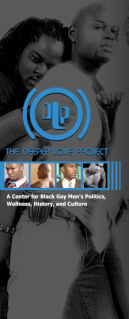

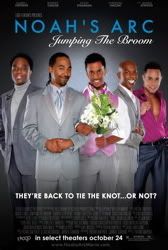
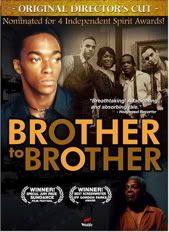
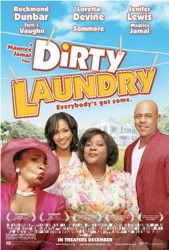
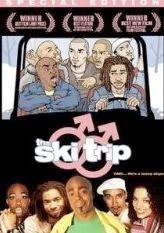
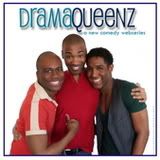
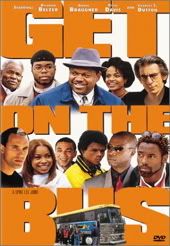
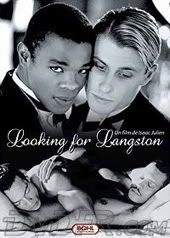
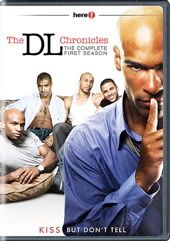
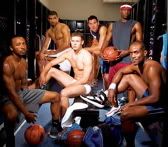
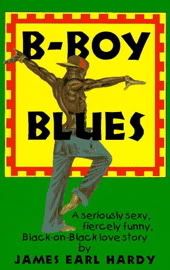
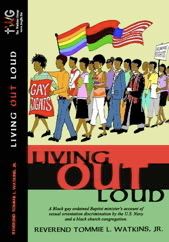
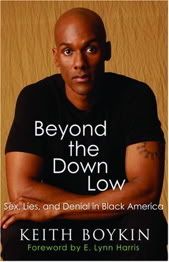

9 Comments:
This was brilliantly argued and utterly persuasive in its reasoning. I am so proud, so incredibly proud, of this young brother. And I am also proud to know that Morehouse is educating him and his fellow students relentlessly.
Bravo!
February 17, 2009 6:05 PM
I love it....he wasn't even really arguing/debating...he was just stating the facts. He has much class and I applaud him for not taking some of the low blows(stereotypes) that the other writer did. *applause*
February 17, 2009 10:26 PM
Impressive, but of course, he's a man of Morehouse. Thanks for sharing this with us, now let's share it with the rest of the US. The United States has a long way to go when it comes to this discussion. This is certainly a much need icebreaker to the much needed discussion.
February 17, 2009 11:03 PM
I realize that Michael Brewer is a young man, probably very smart (maybe even brilliant), who is attending college and so writes in the current academic jargon. I know from personal experience that you do learn that "academic speak" in college.
Some people, however, who may not be familiar with the subject at hand may be inclined to scratch their heads and say what is this guy talking about? If Mr. Brewer developed a more "accessible" style of writing it might go a long way towards getting his (our) message out to more people.
February 18, 2009 1:24 AM
I applaud the article and his ability to articulate his thoughts in this manner. I will also say, in response to the comment regarding "academic speech” that Black people in this country must smarten up because we will never achieve true and widespread success if we continue to dumb it down. If you need Webster to help you understand the vernacular in this article, than by all means have it at your side. Do not ask a well spoken and intelligent person to edit his art in order to reach the below average vocabulary. Dickens, Wilde and Tolstoy didn't... Why should this young man?
Kudos, Mr.Brewer!
-Your Bennett Sister
February 18, 2009 5:13 PM
I'm sure that I would've loved this article just as much as everyone else has. But I just couldn't make it past that extensively wordy disclaimer. SOmetimes less is just enough.
February 18, 2009 8:22 PM
Kudos to Mr. Brewer for his eloquent & poignant response. Unlike the writer of the homophobic article, Mr. Brewer is a genuine example of our Dear Old Morehouse strives to produce once taking us under Her wing. I'd also like to applaud my Bennett sister for her eloquent statements on Black literacy. Well done!
A Morehouse Man BS'01
February 19, 2009 1:26 PM
Great article and very well written but entirely too long! The first five paragraphs were wholly unnecessary. Because of the sophistication and aplomb with which the article was written, the subject matter was raised to a higher level than that of the original writer. It became an academic topic rather than a mere opinion piece. But what else would you expect from a Black Gay Intellectual?
February 24, 2009 10:46 AM
I appreciate the strength and bravery of this piece. It is possible to be a Black intellectual who speaks to the people. Also, I continue to insist that the use of terminologies that spring from European imagination to describe Black Same Gender Love poses a disservice because it skews perceptions throughout the African Diaspora.
I stumble across this blog after learning of Morehouse's misdirected, ignorant "dress code" - which not only is an assault to Black men who are Same Gender Loving, but is deeply rooted in Patriot Act style politics that seeks to handcuff the natural maturation process of baggy pant wearing Black young men.
Morehouse once again upholds its tradition of bigotry. It is ugly, and it is like a wound that will not heal.
Thanks,
Terry Howcott
October 17, 2009 11:08 AM
Post a Comment
<< Home